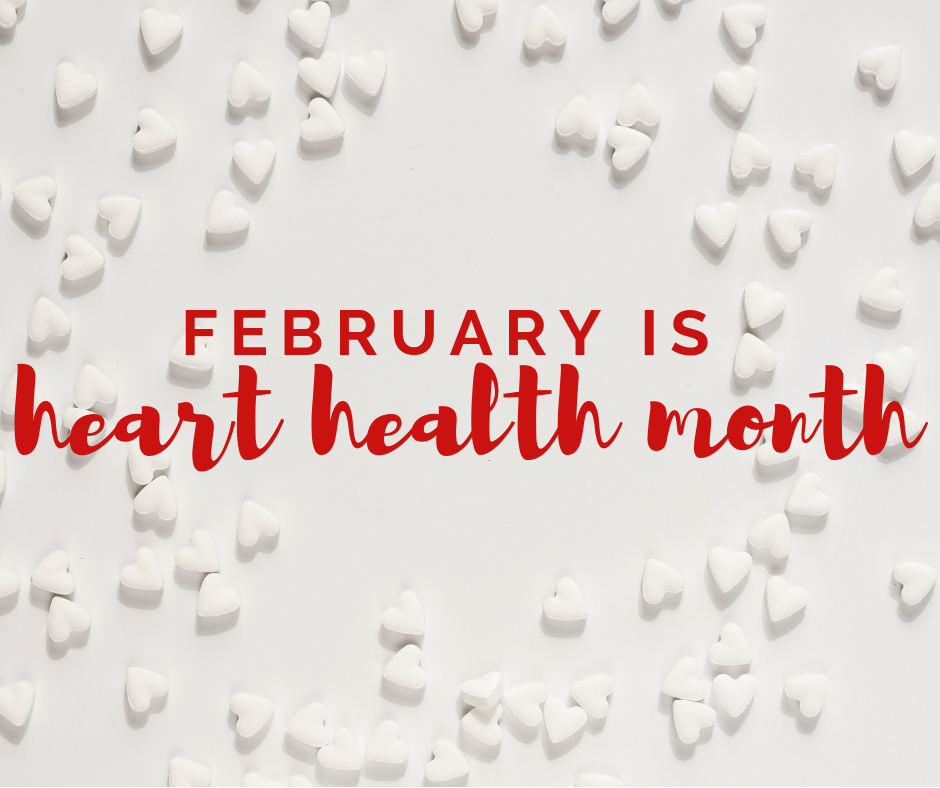February Is Heart Health Month
And coincidentally, I started having heart issues a few weeks ago. It all started with two cups of coffee…and a small soda (I know, bad choice); way more caffeine than what I usually have. Well, I started having palpitations, which is not unheard of, I’ve had palpitations before, usually during stressful times, or when I’m taking decongestants for a cold, or sometimes when I haven’t had enough water or too much caffeine. This time it felt like someone was bouncing a basketball in my chest, or like I was climbing a flight of stairs, over and over.
Testing
I really didn’t think much of it and figured they’d go away on their own, as usual. Well, they didn’t. They lasted and lasted. After 24 hours, I started to worry, so I made an appointment with my PCP to have it looked at. After an EKG that clearly showed the palpitations, which appeared benign, my doctor sent me home for the weekend and told me to hydrate and come back in Monday if they were still there.
They were still there. So I went back in and did a 24-hour Holter test. That’s where they stick the cords to your chest and you have to carry around a little box and record every heart “incident” that you experience in 24 hrs. I was pushing the button on the box and recording palpitations about every 10-20 beats. When the results came in, the palpitations were definitely there: 10,000 out of 100,000 beats. So, my primary care referred me to a cardiologist; I chose to contact Dr. Caitlyn Giesler, a highly rated cardiologist, specializing in female cardiology, because you know, women’s hearts are different and heart disease symptoms manifest differently than men. I didn’t want my symptoms to be overlooked.
Results
Dr. Giesler looked over my EKG, looked over the Holter results and we chatted some about lifestyle. She was very pleased with the amount of exercise I do (running, weightlifting and kick-boxing) and actually recommended that I continue doing workouts and even adding in sprint workouts to my running, or more interval workouts. She told me the palpitations were benign and not stress related since I also had them while I slept; they’re “electrical,” rather than “plumbing.”
This came as a huge relief, but was frustrating since the palpitations were still there and felt uncomfortable. Dr. Giesler recommended I increase fluids to 90oz a day since I am very active, to add in more electrolytes in addition to water, and to start taking magnesium. She stressed that it’s important to hydrate, to eat three meals a day, and to get enough rest. She also prescribed an ECG, or an ultrasound of my heart to examine the structure of my heart to make sure there are no anomalies there.
Most Important Take-away
When I told her I planned on writing about this for the blog, she was very pleased and emphasized that it’s extremely important that women not ignore symptoms they have and to see their physician regularly. That is why women often overlook heart disease. Dr. Giesler explained, “It is a matter of self-care; yearly exams are important, a pap smear and a breast exam; but more important is the blood work…heart attacks for women can often come without any of the telltale symptoms, so it’s important to be proactive…”
I was relieved that everything looked benign and that I could still workout. I will soon find out the results of the ECG, and I am glad that I had this checked out when I did. I encourage anyone who has not seen the doctor in a while to make an appointment for a physical, get the labs done, and communicate any symptoms to your doctor.










